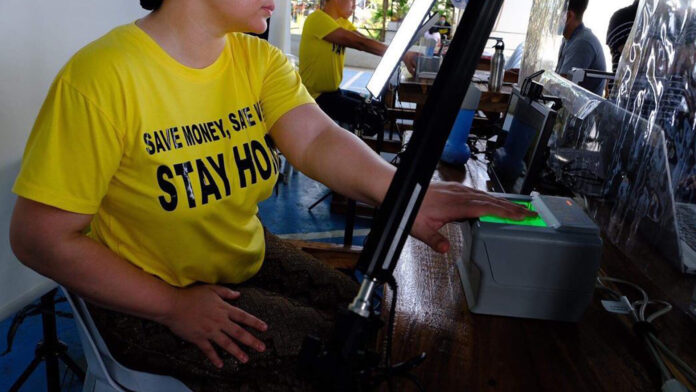The Philippine Statistics Authority (PSA) continues to implement measures to ensure that all demographic information of Philippine Identification (PhilID) cardholders is genuine.
PSA will soon roll out a website and offline mechanisms to enable relying parties, such as government agencies and financial service providers, to verify, using public-private key cryptography, the digital signature in the QR (quick response) code and confirm that the demographic information is accurate and has not been tampered with, the agency said in a statement on June 29.
PSA said the same QR code mechanism will be available through electronic versions of the PhilID, such as an app.
“The implementation of the plan will be included in the roadmap for the Philippine Identification System (PhilSys),” the PSA said.
The PSA’s plan is timely as it announced that as of June 17, 2021, a total of 561,042 PhilID cards are already with official delivery partner Philippine Post — almost 15 percent of 3,605,401 registrants who have passed processing and deduplication following Step 2 (biometrics) registration.
PSA has partnered with the Bangko Sentral ng Pilipinas (BSP) to produce the PhilID cards and provide personalization equipment and facilities. PSA manages the personalization process.
PSA assures easier and safer transactions using the PhilID, like in accessing financial assistance from the government or availing of financial credit offerings from the private sector.
“In terms of physical security elements, the PhilID is integrated with anti-counterfeiting security features such as guilloche print, hologram, security inks, optically variable inks, and latent images similar to the security features used in banknotes and other security documents.
Complementing the physical security features, the PhilID card also contains a digitally-signed QR code with selected demographic information for digital security and to facilitate offline verification of identity.”
“The PhilID card is the physical representation of the entire PhilSys program and the PSA is working closely with BSP for the production and personalization of PhilIDs, leveraging on our Central Bank’s longstanding, solid reputation for excellence in producing secure prints for Filipinos – from our banknotes to our passports,” PSA Undersecretary Dennis Mapa said.
Mapa, also the National Statistician and Civil Registrar General, added the security features will protect identity and make the PhilID the best valid proof of identity for Filipinos.
PSA said government agencies and private businesses must acknowledge the PhilID as a valid proof of identity in accordance with Section 12 of Republic Act No. 11055, or the PhilSys Act.
Signed into law by President Rodrigo R. Duterte in August 2018, the PhilSys Act aims to establish a single national ID for all Filipinos and resident aliens.
The national ID shall be a valid proof of identity that shall be a means of simplifying public and private transactions, enrollment in schools, and the opening of bank accounts.
It also seeks to boost efficiency, especially in dealing with government services where people will only need to present one ID during transactions.
Photo credits: PhotoVille International


